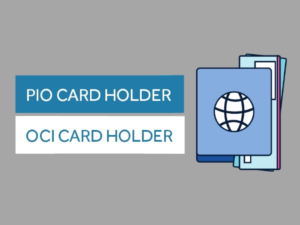What is a Green Card?
A Green Card, officially known as a Permanent Resident Card, is a document that grants an individual the status of a lawful permanent resident (LPR) in the United States. It serves as evidence that the individual is authorized to live and work permanently in the country. Green Cards are typically valid for a period of 10 years and must be renewed before expiration.
Examples of Green Card
- An immigrant who has been granted lawful permanent resident status.
- A foreign worker who has obtained an employment-based visa.
- A spouse or child of a U.S. citizen or lawful permanent resident.
Uses of Green Card
A Green Card allows individuals to enjoy several benefits and rights, including:
- Living and working permanently in the United States.
- Traveling in and out of the country without needing a visa.
- Eligibility for Social Security benefits.
- Access to healthcare and educational opportunities.
- Possibility of applying for U.S. citizenship after meeting certain requirements.
What is Citizenship?
Citizenship is the legal status of being a recognized member of a nation or country. It involves rights, duties, and privileges granted to individuals by the government. In the context of the United States, citizenship provides individuals with the highest level of status and rights.
Examples of Citizenship
- An individual born within the territory of the United States.
- An individual born to U.S. citizen parents, even if outside the country.
- An individual who has gone through the naturalization process and obtained citizenship.
Uses of Citizenship
Citizenship offers several advantages and privileges, including:
- The right to vote in federal elections.
- Protection from deportation.
- Access to government benefits and services.
- Eligibility for certain government jobs.
- Easier travel with a U.S. passport.
Differences Between Green Card and Citizenship
| Difference Area | Green Card | Citizenship |
|---|---|---|
| Legal Status | Permanent Resident | Full Citizen |
| Eligibility | Available to immigrants and certain categories of nonimmigrants. | Available through birth, descent, or naturalization. |
| Right to Vote | Not eligible to vote in federal elections. | Can participate in federal, state, and local elections. |
| Deportation Risk | Subject to removal proceedings if involved in certain crimes or immigration violations. | Generally protected from deportation, except in cases of fraud or crimes committed during the naturalization process. |
| Travel Document | Requires a valid passport from their home country along with a Green Card to travel. | Can travel with a U.S. passport, providing easier entry to various countries. |
| Dual Citizenship | Many countries allow dual citizenship with a Green Card. | Some countries restrict dual citizenship, and naturalization may require renouncing previous citizenship. |
| Eligibility for Federal Programs | Eligible for some federal programs and benefits, but not all. | Eligible for a wide range of federal programs and benefits. |
| Consular Protection | May not receive the same consular protection as citizens when abroad. | Entitled to consular services and support from U.S. embassies and consulates. |
| Right to Run for Public Office | Restricted from running for most public offices, including the presidency. | Eligible to run for nearly all public offices, including the presidency. |
| Naturalization Process | N/A | Involves fulfilling residency, language, and civic knowledge requirements, as well as passing an exam and taking an oath of allegiance. |
Conclusion:
In summary, a Green Card provides lawful permanent residency status, allowing individuals to live and work in the United States, while citizenship grants additional privileges such as the right to vote and protection from deportation. Green Card holders are subject to certain limitations compared to citizens, but they still enjoy many benefits of living in the country.
People Also Ask:
1. Can Green Card holders become U.S. citizens?
Yes, Green Card holders can become U.S. citizens through the naturalization process. They must meet certain requirements, including maintaining continuous residency, demonstrating good moral character, and passing an English and civics test.
2. Is a Green Card the same as a work permit?
No, a Green Card is not the same as a work permit. While a Green Card allows individuals to live and work permanently in the United States, a work permit, also known as an employment authorization document (EAD), grants temporary employment authorization to certain nonimmigrant visa holders or individuals with pending immigration cases.
3. Can I lose my Green Card?
Yes, Green Card holders can lose their status if they commit certain crimes, violate the conditions of their residency, or abandon their intention to live permanently in the United States. Additionally, extended periods of absence from the country without a reentry permit can result in the abandonment of permanent residency.
4. How long does it take to become a U.S. citizen?
The naturalization process time can vary, but it generally takes around 6 months to a year from the time of application to complete the process. Factors such as the backlog of applications, citizenship interview scheduling, and background checks can affect the overall processing time.
5. Can I sponsor family members for a Green Card if I am a citizen?
Yes, U.S. citizens can sponsor certain family members, including spouses, parents, children, and siblings, for a Green Card. The process typically involves filing a Family Preference Petition and meeting specific eligibility requirements.



